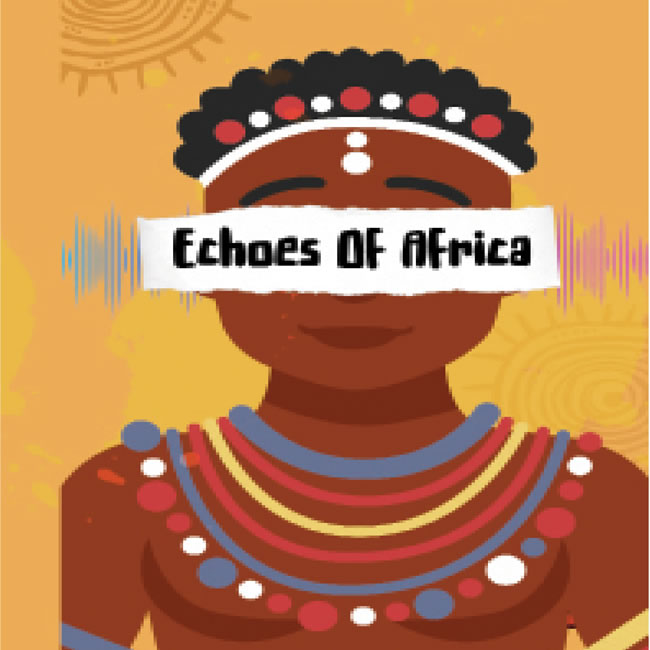In her poetry collection, Echoes of Africa, Glory Oritseweyinmi Ogunli calls citizens and lovers of the continent home.
THE kicker when confronting an interviewee on African affairs, especially in relation to identity, usually is “Who really is an African in the 21st century.”
Haven’t the lines of separateness, the wounds of transatlantic slave Trade and economic exploitation that followed colonialism blurred enough? The holy books teach that mankind, regardless of skin complexion is with God. Globalisation has broken boundaries and made us one by placing a dominant culture over a less superior one through the outlets of mass media, ultrafast transportation and a collapse of physical boundaries.
But poetry has a way of encasing all these and providing salient answers. Identity? Confusion as regards poor consumer culture? Challenges of postmodernism? Poetry is an ocean, a brimless belly that holds answers to all things. And when this is coming from someone who is living the experience, the dissection of the thorny issues is simpler and purer, too. That is what Ogunli Oritseweyinmi Glory has done in her present poetry collection, Echoes of Africa.
The poetess makes no pretence about her desire to deploy this medium to communicate her feelings of love, fears, anguish and disdain about her continent, Africa.
The writer is firmly in tune with the daily troubles of this continent – the wars, her peace effort and her corrupt elite who impoverish the masses despite the huge natural resource endowment.
Entry into Ogunli’s collection is possible by attempting to understand the message she’s got up the sleeves. And she wastes little time trying to pass this across to her readers. She situates time and locale from the outset in an automated engagement with words. Her first poem, “These Are Our Days, And This is Our Home” clearly portray her concerns about thematic location:
Drowned in mysteries and sore beauties
Weeping of the wind and applauds of the trees
Laughing in our sorrow and in our joy
Dance in the rain and toil the sun…
Songs of our mothers and depthless care
Shooting stars and dancing skies
These are our days, and this is our home.
The identifiers – muse makers, griots and gatekeepers are a common feature of African traditional storytelling enterprise. The traditional caste is where Ogunli turns to, with beautiful metaphors to shape for us, in the distant past and in the present where joy and pain have resided for eternity. This freshness from a tendril manifesting in pristine words, gives Africa a firm plinth in our individual and collective memory. Hers is an expression of love, a call transgressor for repentance and a bard’s musing about a garden threatened by pelf.
So, the poet’s persona continues on a troubadour of self-definition. She is on transit – seeking the purity and corruption of the world. But the intent isn’t much to give away the dense wholesomeness of her being even in the cross-boundary interaction.
Holding rigidly to her traditions, she says: yes, “the world is amazing/but the ways of my people is enshrined in my bones/I bring along the honour of our land/The beauty of our heritage/and the glory of our past.”
Where else does memory scabs itself if not these beautiful lines rendered by a proud adventurer, one deserving to learn, to observe, to conquer and to makeover and to preserve her own origins? She is Africa crossing the seven hands of the weathervane, yet keeping faith with her roots, even if she is narcissistic at times.
The subject of Africa’s motherhood takes centre stage in this offering and looms over it endlessly. The poetess pastes on all shades, the imagery of a mother who has given birthright patents to her children but she is left unkempt and uncared for. This, Ogunli knows much about the lost memories and “Like the sweet nothingness and lip love for instance”. Who does she blame? None. But this reviewer can thread through the fat-bellied capitalists who are destroying her natural environment, the politicians and unscrupulous businessmen and women who preen profit more than Mother Nature and her children. So, in her helplessness, the writer only feels a deep sense of “solitude and pain”, her “emotions wishfully rain and drain.” It is understandable if this new voice feels this way.
Anyone who doesn’t should ponder why Africa, the bedrock of civilisation and the largest holder of natural resources is a pitifully at developmental variance with other continents, including those far less endowed in population and non-human resources. The songs are a virulent voice that thus at the policymakers’ cosy penthouses.
Questions ought to be answered, were poetry a judge or sought of two-step inquirer. But poetry is a jurist with endless possibilities of judgment and reparations. Even this present call for a rethink, following on the path of its forebears will taste justice, still.
In reading Ogunli’s poetry, the mind leaps back to the era when Africa was the centrepiece of the world identity discourse – when her warriors at home and in forced displacements kept her name on the lips of her traducers. Ogunli’s literary forebears pioneered Negritude in response to Western pejorative commentaries.
Leopold Senghor, Cesaire Aime borrowed a leaf from the wise men in of the Harlem Renaissance to paint the rainbow colours of this beautiful earth.
The onslaught against colonialism and the derogatory observance of the continent were pushed back not by canards but by practical truths.
Indeed, Echoes of Africa is a bauble, a gift to accompany us in jaunts and journeys. It should also sit on study tables and be served a la carte for all who travel on the bloodied wounds of this continent.






